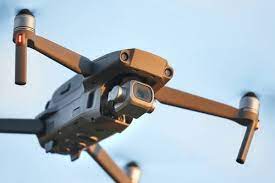A detailed investigation surrounding the hiring of young African women to work in drone manufacturing at the Alabuga Special Economic Zone (SEZ) in Russia has shed more light on the cruel reality of Russia’s war machinery, and this has sparked serious concerns about exploitation and human trafficking.
Apples Bite International Magazine has taken it upon itself to expose the recruitment, working conditions, and the broader implications of these practices within the context of Russia’s military needs amid the ongoing war in Ukraine.
Recruitment Tactics:
The recruitment programme, named “Alabuga Start,” mainly targets women aged 18 to 22 from different African nations like Rwanda, Kenya, South Sudan, Sierra Leone, Uganda, Sri Lanka and Nigeria. Promoted via a consistent social media campaign, the initiative entices potential recruits with benefits like free airfare, massive salaries, and the thrill that comes with experiencing Europe.
Applying is deceptively straightforward, and candidates are only required to complete a PC game and a quick Russian vocabulary test. However, several women have since revealed that the real nature of their employment is completely different from what was advertised.
Rather than partaking in educational or hospitality roles like the ad said, the women found themselves working in a drone manufacturing facility that produces weapons for Russia’s military operations in Ukraine. The recruitment campaign has been largely criticized for exploiting vulnerable populations, especially young girls, who are perceived to be easier to control.
“Alabuga Start” was packaged as a foreign program for young women, offering opportunities like free flights and the potential to earn a good living without any previous work experience. The so-called programme was especially designed to aid the empowerment of the female gender and has specific projects for candidates, including vocational training initiatives.
Working Conditions:
As soon as the young women are hired, they face a rude awakening they never saw coming. Reports have said that these girls are forced to work for long hours — about 12 hours per day — under constant surveillance and with little free time to rest and recover.
They live in dormitories that are heavily monitored and are compelled to abide by strict rules that guide where they can go and who they can communicate with. Many have concluded that arriving at Alabuga is like walking into a trap, and a lot of these enslaved women end up regretting their decision to apply.
The working conditions are especially dangerous due to their exposure to hazardous materials without proper protective gear. The program’s victims have reportedly battled several health challenges as a result of working with caustic chemicals used in drone assembly, which ended up triggering several skin irritations and other psychological setbacks.
In addition to the health risk, the salaries promised during the hiring process end up being underwhelming after costs for accommodation and other fees are deducted.
Read Also: Dating A Beautiful Lady Won’t Stop Me From Admiring Another Woman – Don Jazzy
The Recruitment Pipeline:
According to documents obtained from various sources, the “Alabuga Start” program has hired 182 women from more than 30 nations thus far, with major contingents from:
Uganda: 46 participants
Kenya: 14 participants
Nigeria: 14 participants
South Sudan: 14 participants
Rwanda: 14 participants.
Deceptive Recruitment Tactics:
The initiative masks its real purpose via a sophisticated misinformation campaign:
Promoted as an educational or work opportunity.
Social media campaigns that target vulnerable young women aged 18-22.
Pledges of high salaries and a European adventure.
Government-level involvement from African nations.
Shocking Working Conditions:
Participants face dire circumstances:
12-24 hour work shifts.
Minimal compensation (approximately $550 monthly).
Unfair deductions for accommodation and services.
Persistent surveillance with facial recognition.
Strict curfews from 11 PM to 6 AM.
Lack of communication devices.
Health and Safety Risks:
Exposure to toxic production materials.
Ineffective protective equipment.
Reported health issues, including skin irritations.
Working in a potential military target zone.
Proximity to active military production.
Racial And Psychological Exploitation:
Racist terminology in official documentation.
Infantilizing “schoolgirl” uniforms.
Social media talks using degrading language.
Psychological manipulation of vulnerable populations.
Military Production Details:
The facility’s main purpose is drone manufacturing.
Manufacturing about 5,200 suicide drones yearly.
Directly aiding Russia’s military operations in Ukraine.
Plans to expand to similar facilities in Russia and Uzbekistan.
Government Involvement:
Shockingly, several African governments appear to be aware of the exploitation, proof below:
Nigeria: Allocated 150 polytechnic places in 2022.
Uganda: Assigned 218 spaces in 2023.
Ethiopia: Advertised the program via official channels.
Kenya: Discussing increased participant numbers.
International Response:
Human rights organizations are calling for demand thorough international investigation.
Diplomatic pressure on the involved governments.
Support networks for victims.
Tracking of recruitment practices.
Legal and Ethical Implications:
The situation at Alabuga SEZ has exposed the lengths nations are willing to go to traffic human beings and exploit labour.
According to international definitions of human trafficking, recruitment via deception or coercion for exploitative labour qualifies as trafficking. The United Nations has since announced that Russia’s actions could possibly fall under that category if the recruitment is fraudulent.
The Alabuga SEZ recruitment is a major human rights issue that needs to be addressed asap, else vulnerable citizens across the globe will keep falling prey to abuse and exploitation all in the name of grabbing opportunities.
Source: Apple Bite Int’l Magazine.


